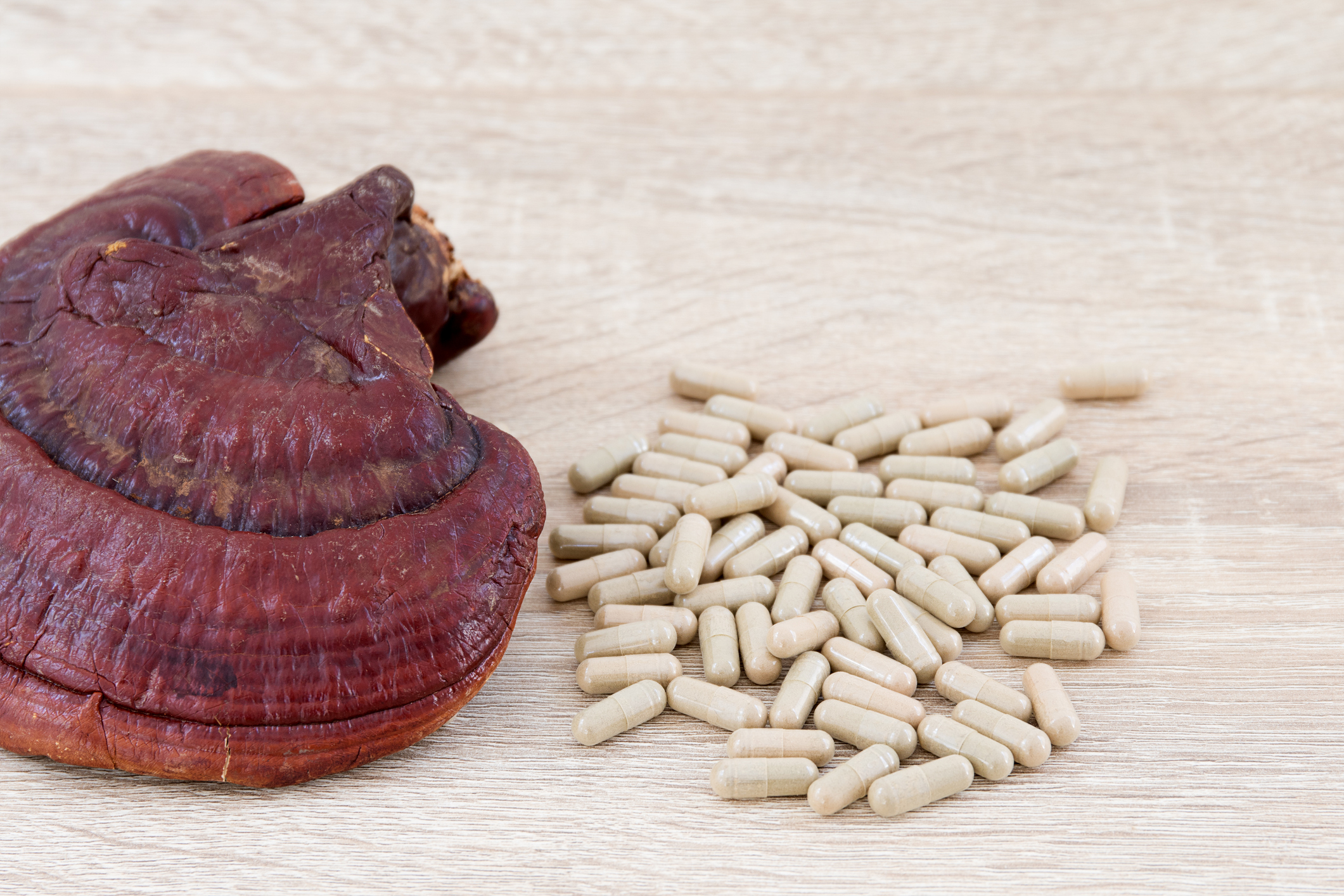
04 Oct REISHI MUSHROOMS HEALTH BENEFITS
Reishi mushrooms, also known as Ganoderma lucidum, have been used for thousands of years in traditional Chinese medicine. These mushrooms have a long history of use for various health purposes, including improving sleep, reducing stress, and boosting the immune system. In recent years, scientific research has confirmed many of the traditional health benefits of Reishi mushrooms and has also uncovered new ones.
One of the primary benefits of Reishi mushrooms is their ability to boost the immune system.
Reishi mushrooms contain polysaccharides, beta-glucans, and triterpenes, which have been shown to have immunomodulatory effects. A study published in the International Journal of Medical Mushrooms in 2010 found that Reishi polysaccharides increased the activity of immune cells, such as macrophages and T cells, which play a crucial role in the body’s immune response. Another study published in the Journal of Ethnopharmacology in 2011 found that Reishi polysaccharides reduced the severity of symptoms in mice with experimental autoimmune encephalomyelitis, a condition that is similar to multiple sclerosis in humans.
Reishi mushrooms are also believed to have potential benefits for cardiovascular health. A study published in the Journal of Agricultural and Food Chemistry in 2010 found that Reishi extract improved blood lipid levels and reduced oxidative stress in rats with high cholesterol. Another study published in the Journal of Ethnopharmacology in 2013 found that Reishi polysaccharides reduced oxidative stress and improved heart function in rats with heart failure.
In addition to their immune-boosting and cardiovascular benefits, Reishi mushrooms are also believed to have potential benefits for mental health.
A study published in the Journal of Ethnopharmacology in 2013 found that Reishi polysaccharides reduced anxiety and depression-like behaviors in mice. Another study published in the Journal of Medicinal Food in 2009 found that Reishi extract improved sleep quality and reduced insomnia symptoms in rats.
Reishi mushrooms are also believed to have anti-inflammatory and antioxidant properties. A study published in the Journal of Ethnopharmacology in 2015 found that Reishi polysaccharides reduced inflammation and oxidative stress in a mouse model of colitis. Another study published in the Journal of Agricultural and Food Chemistry in 2009 found that Reishi extract had potent antioxidant activity in vitro.
Finally, Reishi mushrooms have been shown to have potential benefits for liver health.
A study published in the Journal of Ethnopharmacology in 2013 found that Reishi polysaccharides reduced liver damage and improved liver function in rats with liver cirrhosis. Another study published in the Journal of Agricultural and Food Chemistry in 2009 found that Reishi extract had liver-protective effects in vitro and in vivo.
In conclusion, Reishi mushrooms have a long history of use in traditional medicine and have been shown by scientific research to have numerous health benefits. These benefits include boosting the immune system, improving cardiovascular health, reducing stress and anxiety, reducing inflammation and oxidative stress, and improving liver health. While further research is needed to fully understand the mechanisms behind these benefits, Reishi mushrooms are a promising natural supplement for maintaining overall health and well-being.
Far far away, behind the word mountains, far from the countries Vokalia and Consonantia, there live the blind texts.


